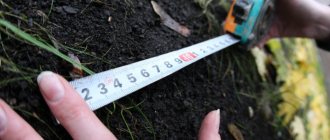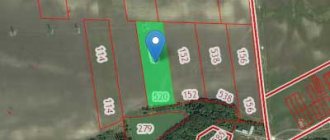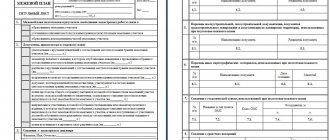Home / Land / Acquisitive prescription
The shortcomings of the legislative regulation of land legal relations in Russia have led to the fact that it is often very difficult to register plots of land that some citizens have owned for many years, and sometimes decades, in practice, having received the appropriate permission from the authorities. Therefore, the institution of acquisitive prescription provided for in the Russian Civil Code is very relevant today.
Since 2006, Russian companies and citizens have had the opportunity to have their ownership of a plot of land recognized in courts through the institution of acquisitive prescription.
Article 234 of the Civil Code states that the owner of a plot of land, who is not legally the owner of this plot, but who has owned his own land in good faith, continuously and openly for fifteen years, ultimately acquires legal ownership of this plot of land.
As follows from the provisions of the said article of the Civil Code, both Russian citizens and legal entities can be subjects of the legal institution of acquisitive prescription. Consequently, the Russian Federation as a subject of civil legal relations, as well as Russian regions and municipalities, do not have the right to become subjects of ownership rights to a plot of land through acquisitive prescription.
As a result, only private land ownership can be registered on this basis, but state or municipal property cannot.
The acquisition of plots of land by age of ownership, compared with other real estate, has a number of legal features. This is explained by the fact that, due to the prescription of ownership, only private property rights can arise, but not all plots of land can be acquired into the private ownership of organizations or individuals.
First of all, this is due to the restriction, based on the provisions of the Land Code, of the civil turnover of certain plots of land and the establishment by law of special rules in relation to them. In particular, plots of land are not subject to legal registration as private property if they are withdrawn from land circulation or are somehow limited in it.
The right of ownership to plots of land, due to the legal institution of acquisitive prescription, can be acquired for plots that formally belong to the right of ownership to some other person, or for legally ownerless land.
Conditions of acquisitive prescription
To register ownership of land, citing acquisitive prescription, five conditions must be met:
1. The duration of existence of land ownership is 15 years . This period of land ownership begins to be calculated at the moment the right holder acquires this ownership. If a plot of land can still be reclaimed from its owner by the legal owner of the land, then the period of possession begins after the expiration of the limitation period.
2. Continuity of land ownership . This condition, provided for in the Russian civil code, means that the plot of land for the entire period (that is, at least for the specified 15 years) did not leave the possession of a specific person applying for registration of ownership. Ownership of land, which appears and then ceases, does not entail the emergence of acquisitive prescription for a plot of land. The only exceptions are those cases when a plot of land was removed from legal possession against the will of its legal owner.
It is worth noting that the continuity of ownership of a plot of land is maintained when the legal owner is replaced by its legal successor (Article 234, paragraph 3 of the Civil Code of the Russian Federation). Succession to land is established in accordance with the norms of civil law. For individuals, the provisions of inheritance law are most often applied. However, there are nuances here too. Since the testator-owner of a plot of land was not the owner of this plot according to legal documents, he did not have the right to leave it under a will. Therefore, succession in this situation is possible only for heirs by law.
Based on the above norms, the actual owner of a plot of land, claiming to take ownership by virtue of the civil law institution of acquisitive prescription, in order to calculate the period of legal possession, has the right to add to the time of his possession of the plot of land the period of possession of this plot, which was exercised by his deceased relative-testator , provided that the legal heir entered into the inheritance and continued to use the land after the death of the testator.
In addition, the continuity of long-term possession is preserved when the owner of the land transfers his plot for temporary possession to a third party. 3. Possession of a plot of land is carried out by a person who is not considered the owner of the plot, as his own . This provision means that the owner of the land must extract for himself the beneficial properties of the plot of land in accordance with its purpose. For example, an owner uses a plot of land intended for gardening to grow crops for his family.
When establishing this condition for acquisitive prescription, the legislator assumes that ownership of a plot of land as one’s own means ownership not under a contract. Consequently, the provisions of Article 234 of the Russian Civil Code on acquisitive prescription should not apply in situations where ownership of land occurs as a result of contractual obligations (storage, gratuitous use, lease and other agreements).
In judicial practice, the most common case when it is possible to use the institution of acquisitive prescription to formalize ownership by the owner of land plots is the transfer of these plots by the legal owner to another person without proper legal registration.
For example, a citizen acquired a plot of land even before the Russian Land Code came into force, but a written purchase and sale agreement was not drawn up by the parties to the transaction, and registration of rights, naturally, was not carried out. The acquirer, who owned the plot, was convinced that he had bought the land because he had paid the former owner a certain amount of money, and he had vacated the corresponding plot of land. In reality, the former owner remained the formal owner of this land.
4. Openness of ownership , meaning that others should have the potential opportunity to observe this ownership of the right holder of a specific piece of land.
5. Good faith ownership of the relevant plot of land . In this case, bona fide ownership means the internal conviction of the owner of a piece of land in the legality and validity of his ownership. If the actual owner of the land knew that the plot was owned by another citizen or organization, and arbitrarily occupied this plot of land, then such possession, even if carried out for a long time, cannot be recognized as bona fide.
I have been caring for the site for 5 years. how to register land in your name?
On July 1, the Law “On Amendments to Certain Legislative Acts of the Russian Federation Regarding the Improvement of the Turnover of Agricultural Lands” comes into force, which will allow local authorities to forcibly confiscate agricultural lands not used for their intended purpose or with obvious violations. In addition, the state will finally be able to deal with land shares and unclaimed land shares, which were once generously distributed to collective farmers. Unregistered and unclaimed shares will also become the property of local municipalities. If possible, please attach articles of the code that clearly state which building must be located on the individual housing construction plot in order to be able to purchase this plot without bidding.
The countdown of the period begins from the moment ownership of the property arises. The owner can reclaim the plot after the expiration of the limitation period at the moment when he was notified or should have been notified that the property had passed into the possession of a third party.
This is the ability for a citizen or organization to become the owner of a land plot if they were not previously the owners, but owned and used it in good faith.
Depending on the circumstances under which the land is seized, the initiators of the process can be both federal authorities and representatives of local government. In some situations, it is possible to withdraw under an accelerated procedure, without preliminary trial. In practice, there are often cases when the data on the area and boundaries of a land plot in title documents are not identical to the actual state of affairs. There are many reasons for this. Most often, the discrepancy between the data in the cadastral passport and the actual boundaries of the land was the result of improper measurement of the land.
What to do if there is more land during land surveying and how to get the plot registered? Practice in our country has developed in such a way that when land surveying, their actual size may turn out to be much larger than the area taken into account by the cadastral service. There may be a lot of reasons for this, but in any case this is an obstacle to registering such a site in the registry, so the problem needs to be solved.
Only on the basis of land surveying can all data on the location and area of a land plot be legally obtained. Several categories of owners of summer cottages can re-register “extra” acres. First of all, these are landowners or their heirs who received real estate during the Soviet Union. Also, certain problems and difficulties in law enforcement practice existed before the adoption of the Land Code of the Russian Federation.
It is hardly wise to invest free money in agricultural land if you do not plan to develop the acquired land. After all, it can be withdrawn at any time due to improper use.
This is important to know: Land tax for large families
Citizens, having such property, at a certain point in time ask themselves how to properly legitimize abandoned land. Such land can be considered either private or other types of land. Today, according to the State Duma Committee on Agrarian Issues, 80 percent of agricultural land is still not legally registered. These are the lands of summer residents and gardeners, shareholders and organizations. For example, share owners carried out state registration of their rights to only 18 million hectares of land out of 115 available. The main problem of the legitimacy of land use also exists among agricultural organizations. The ownership of these organizations is 3.5 million hectares, the remaining land shares are used as leases with state registration of lease agreements and without state registration, and also as representation without drawing up any documents for the land (in fact, this is self-seizure of unclaimed land shares).
The procedure for registering a plot by acquisitive prescription
Recognition of the ownership rights of the owner of a plot of land due to acquisitive prescription occurs through the court.
Since the actual owner of the land does not have documents confirming the legal ownership of this land, he, according to the Russian Civil Code (Article 234), can apply to the courts to recognize his ownership rights.
Only after receiving a positive court decision in response to the corresponding statement of claim and its entry into force, does the owner of the land have grounds for state registration of the ownership of a plot of land acquired through the court due to prescription.
It should be noted that the judge’s ruling must clearly identify the plot of land. This means that from the document it is possible to accurately determine which plot of land is the object of a court order.
To do this, the decision indicates the location (address) of this plot of land, its category, area and cadastral number. If this plot of land is not yet registered in the cadastral register, then registration of ownership rights to it will be denied.
What is acquisitive prescription for a land plot?
Acquisitive prescription is the right of a citizen or legal entity who is not the owner of property, but who in good faith, openly and continuously owns either his own real estate for fifteen years, or other property for five years, to register this property as ownership (clause 1 Article 234 of the Civil Code of the Russian Federation).
According to the explanations contained in paragraph 16 of the Resolution of the Plenum of the Supreme Court of the Russian Federation No. 10 and the Plenum of the Supreme Arbitration Court of the Russian Federation No. 22 of April 29, 2010 “On some issues arising in judicial practice when resolving disputes related to the protection of property rights and other property rights rights”, within the meaning of Articles 225 and 234 of the Civil Code of the Russian Federation, the right of ownership by virtue of acquisitive prescription can be acquired for property owned by another person, as well as for ownerless property.
Documents for registration of rights
To obtain a registration certificate for a plot of land acquired by virtue of the legal institution of acquisitive prescription based on a court order, the following documentation is required:
- a document confirming payment by the applicant of the registration fee in favor of the state;
- a judge’s decision that has the force of title documentation for a plot of land;
- the applicant's identity card;
- cadastral passport and other technical documents for the plot of land being registered.
The issuance of a registration certificate to the owner of the land who has taken ownership on the basis of the relevant judicial act does not prevent such registration of rights from being subsequently challenged through the court by third parties who consider themselves to be the legal owners of this plot of land.
Work included in the overhaul of an apartment building
Apartment inheritance tax
The procedure for deprivatization of an apartment
Apartment exchange agreement
Is it possible to register at the dacha, conditions necessary for registration
How to correctly draw up an agreement to terminate a lease agreement
How to register an acquisitive prescription for a land plot in Rosreestr
The registration of acquisitive prescription for a land plot begins with surveying and carrying out cadastral work on the plot. After receiving the cadastral passport and plan, the plot is registered in Rosreestr.
To register the legal newly acquired right to a plot, according to a court ruling on acquisitive prescription, you need to formalize and submit to Rosreestr or the following package of documents:
- an application to the Unified State Register of Real Estate to secure property rights by court order;
- title document for the site - court decision;
- the original document that identifies the applicant;
- information from the cadastral passport and a copy of the cadastral plan;
- receipt of payment of the duty.
The document is processed within 30 days.
Comments (183)
Marina|
2020/06/19 Hello! I have been the owner of a plot of land in a garden society for 15 years. I bought it from the previous owner without drawing up a purchase and sale agreement, they just issued a card as a member of the garden society. There is information on two previous owners of this plot, but when contacting Rosreestr through the MFC, ownership of neither of them was confirmed. Now I cannot register ownership of this plot of land, because... there is no registration in Rosreestr...Both former owners died, there are no relatives. It is unknown whether there were any other owners of this site; the documentation is only for these. What should I do? How to register ownership with the relevant documents? Thank you ← Previous comments
Do you need to buy back the land if you have been using it for more than 15 years?
The terms established by Article 234 of the Civil Code are 15 years for a land plot, and 5 years of use for another type of property. After this time, the owner can legally contact the relevant authorities to register ownership of the property.
Even if the issue of selling, donating or inheriting a plot of land is not relevant to you at the moment, problems with undocumented documents can make themselves known at any time.
In addition, you will need to provide an original receipt confirming that the state fee has been paid in full. Details for payment can be clarified directly at the court office, but the amount to be paid will need to be calculated independently - based on the inventory value of the site.
We are going to take “a plot of 1200 sq. m. for rent under individual housing construction” from the municipal authorities. Many articles have been studied, but we have not received accurate information - opinions vary.
The current legislation of the Russian Federation (namely, Article 234) establishes the concept of acquisitive prescription - it gives the right to become the owner of a plot of land to a citizen or organization that has used it for a specified period of time. For a plot of land, this period is 15 years, but 3 years must be added to this period (the statute of limitations), therefore, it is possible to apply for registration only after 18 years. If all necessary conditions (fair, open and continuous use) and deadlines have been met, it is possible to begin registering ownership of the land.
This is important to know: New landscaping rules 2020
If possible, please attach articles of the code that clearly state which building must be located on the individual housing construction plot in order to be able to purchase this plot without bidding.
The final stage will be the submission of the necessary documentation:
- or directly to the territorial division of Rosreestr;
- or through a multifunctional center for the provision of public services.
But what to do when the period of use of the land exceeds 20 years, and the documents have not been drawn up? How, in this case, can you confirm your legal right to dispose of the land?
When in possession, the owner can protect his plot from claims of third parties if they do not have any documents to claim the property. In this case, the plot of land should not be owned by a citizen or organization under a contract. The statute of limitations includes the period of time during which the legal successor became the actual user, for example, under a will.
The provisions of the Land Code affirm the right to register ownership of land previously issued for free possession only once. Any further actions regarding the site are carried out on a paid basis.
I want to register a plot of land as my property, but there are no documents for the land. We have been using the site for more than 20 years, what documents should we ask from the administration? I inherited the plot from my grandmother, before (USSR times) there was a house in which my father was registered, my grandmother, as a WWII veteran, was given an apartment and the house was demolished!
How to exercise this right
Aspects of the emergence of ownership rights by acquisitive prescription to real estate:
- no legal owner, ownerlessness;
- the owner does not plan to use the property.
Acquisition of property rights by virtue of acquisitive prescription is possible subject to the following conditions:
- Real estate should not officially belong to the citizen who owns it.
- The use of the object must be visible to third parties.
- Possession must be continuous and cannot be transferred to third parties. However, relatives and legal heirs can receive property without interrupting the period of ownership.
- A forced break is an exception. For example, if the object was stolen or taken by force or deceit.
- Good faith ownership. For example, caring for a sick person if he has relatives, for the purpose of further registration of real estate ownership.
There are precise criteria that define the concept of good faith:
- the property is used for its intended purpose;
- benefit is derived from the object;
- utility bills and taxes levied on the property are paid on time;
- the property is maintained in proper condition.
The ignorance of the actual owner about the ownership of property by another person is proven based on two circumstances.
The acquirer is considered the owner, but not the legal one, since the basis for the transfer of ownership is illegal (for example, the item was acquired from a person who did not have the right to alienate it).
Property can be considered ownerless if it is established that the owner has died and his relatives have not formalized the inheritance. Or the owner abandons the registered property. In this case, it is recognized as ownerless and legalization of use occurs.








